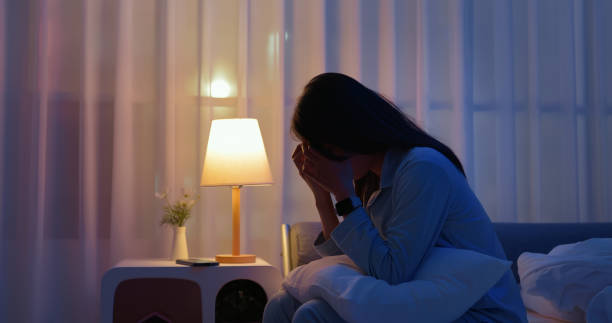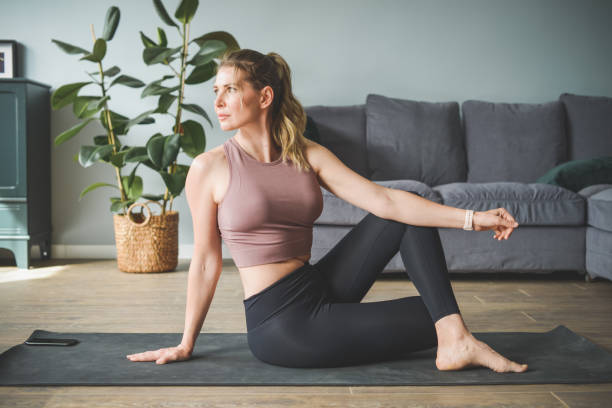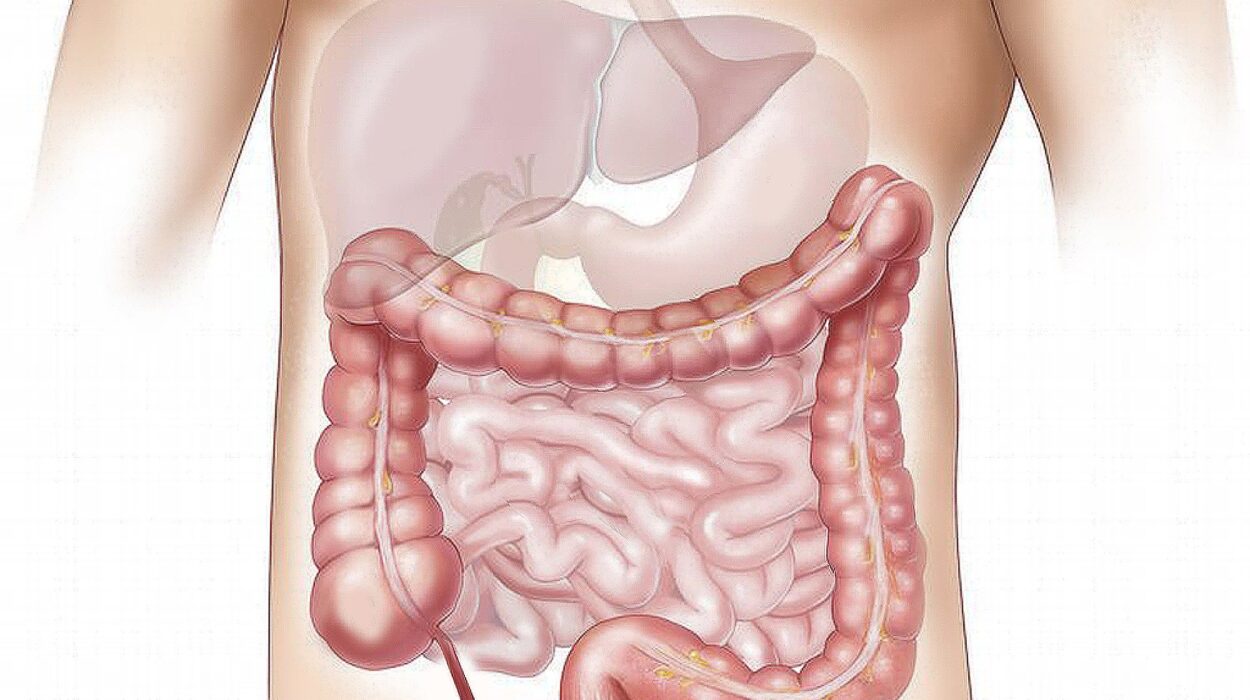Sleep is one of the most essential pillars of health, as vital as food, water, and air. Yet for millions of women around the world, restful sleep feels more like a luxury than a natural rhythm of life. The tossing, the turning, the anxious glances at the clock, the foggy mornings that follow—it is a cycle that too many women know all too well. What makes this struggle even more complex is that women’s sleep is shaped not only by universal human challenges but also by unique biological, hormonal, psychological, and social factors.
The story of sleep in women is one of resilience in the face of hidden battles. It is the story of bodies that endure monthly hormonal fluctuations, pregnancies, menopause transitions, caregiving responsibilities, and the heavy expectations of modern life—all of which can disturb the delicate architecture of sleep. Understanding these sleep problems requires compassion as much as science, because sleeplessness is not simply about fatigue; it touches the very heart of physical health, mental well-being, and emotional balance.
In this exploration, we will dive deeply into the causes of sleep problems in women, the solutions supported by research, and the essential role of sleep hygiene in reclaiming the restorative nights that every woman deserves.
Why Sleep Matters So Much
Before we look at the causes of sleep problems, it is crucial to remember why sleep is non-negotiable for women’s health. Sleep is not just “time off.” During sleep, the body repairs tissues, consolidates memories, balances hormones, and strengthens the immune system. Without enough quality sleep, both body and mind begin to unravel.
For women, insufficient sleep has ripple effects across nearly every system: increasing the risk of cardiovascular disease, raising blood pressure, weakening immunity, triggering weight gain, and intensifying mental health challenges such as anxiety and depression. Poor sleep also interferes with reproductive health, mood stability, productivity, and even relationships.
The emotional toll of sleeplessness cannot be overstated. A night of poor sleep makes the world feel heavier, stressors feel sharper, and joy feel more distant. For many women, it is not simply the lack of rest that hurts but the guilt of being unable to “function as expected.” Society often overlooks sleep as a health priority, but for women, reclaiming rest is nothing short of reclaiming well-being.
Biological and Hormonal Influences on Women’s Sleep
One of the most fascinating yet challenging aspects of women’s sleep health is the profound influence of hormones. Unlike men, whose hormonal fluctuations are relatively stable, women’s bodies are governed by cycles of estrogen and progesterone, which shift dramatically across life stages—from puberty through menstruation, pregnancy, postpartum, and menopause. These shifts alter body temperature, mood, and brain chemistry, all of which feed directly into sleep quality.
Menstrual Cycle and Sleep
During the menstrual cycle, women often report changes in sleep patterns. In the luteal phase—the two weeks before menstruation—progesterone levels rise and then fall, influencing body temperature and creating restlessness. Premenstrual syndrome (PMS) and its more severe counterpart, premenstrual dysphoric disorder (PMDD), can bring insomnia, vivid dreams, or night sweats. For some women, this means that one-quarter of every month is marked by disrupted sleep.
Pregnancy and Sleep
Pregnancy is another stage where sleep becomes both precious and elusive. In the first trimester, elevated progesterone creates overwhelming fatigue during the day, while nausea or frequent urination interrupts nights. In the second trimester, some relief may arrive, but new discomforts emerge—heartburn, back pain, vivid dreams. By the third trimester, sleep often becomes a nightly challenge, as physical discomfort, anxiety about labor, and restless legs syndrome take their toll.
Postpartum Sleep Challenges
After childbirth, sleep disruption is almost inevitable. Newborns rarely follow adult sleep cycles, and women often experience fragmented sleep as they feed and care for their infants. Beyond the practical disruptions, hormonal shifts in estrogen and progesterone levels can intensify postpartum insomnia. Postpartum depression and anxiety can also magnify sleep difficulties, creating a cycle where sleeplessness worsens mood, and low mood worsens sleeplessness.
Menopause and Sleep
Menopause marks another turning point. As estrogen and progesterone decline, many women experience hot flashes, night sweats, and insomnia. Sleep fragmentation becomes common, often accompanied by increased risks of sleep apnea. For some, these disturbances last years, reshaping their relationship with rest long after the transition.
Psychological Stressors and Women’s Sleep
Biology is only part of the story. Women’s sleep is also profoundly shaped by psychological and social pressures. Stress, anxiety, depression, and the mental load of juggling multiple roles are among the leading contributors to insomnia in women.
Women are statistically more likely than men to experience anxiety and mood disorders, both of which directly interfere with sleep. Rumination—lying awake at night replaying conversations, worrying about family, or mentally scrolling through to-do lists—is particularly common. This hyperactive mind makes it difficult for the nervous system to “switch off,” delaying sleep onset and reducing deep restorative stages.
Trauma and post-traumatic stress disorder (PTSD) also disproportionately affect women, particularly those who have experienced abuse or violence. Nightmares, hypervigilance, and frequent awakenings are common, leading to chronic insomnia.
The cultural expectation that women should excel simultaneously as professionals, caregivers, partners, and individuals only intensifies this pressure. The result is often “revenge bedtime procrastination,” where women sacrifice sleep hours to reclaim time for themselves, scrolling through phones or catching up on quiet moments at night. While understandable, this habit further erodes sleep quality.
Medical Conditions That Disturb Sleep
Beyond hormones and stress, several medical conditions—many of which disproportionately affect women—interfere with rest.
- Insomnia: Women are almost twice as likely as men to suffer from insomnia, whether in the form of difficulty falling asleep, staying asleep, or waking too early.
- Sleep Apnea: Once thought to be a male-dominated disorder, sleep apnea is increasingly recognized in women, especially postmenopausal women. Unfortunately, it is often underdiagnosed because symptoms may appear as fatigue, mood changes, or headaches rather than loud snoring.
- Restless Legs Syndrome (RLS): Women are more prone to RLS, particularly during pregnancy. The urge to move the legs can be unbearable at night, making rest elusive.
- Chronic Pain Conditions: Fibromyalgia, arthritis, endometriosis, and migraines—all more common in women—often make sleep a nightly battle.
- Thyroid Disorders: Hypothyroidism and hyperthyroidism, both more prevalent in women, can alter metabolism and disrupt normal sleep patterns.
These conditions create a vicious cycle: poor sleep worsens symptoms, and worsening symptoms further reduce sleep quality.
Lifestyle and Environmental Factors
Modern life places additional obstacles between women and sleep. Long work hours, irregular schedules, excessive screen time, caffeine consumption, and noise or light pollution all conspire against healthy rest. Women often bear a disproportionate share of household labor and caregiving, leaving fewer hours for uninterrupted sleep.
Technology plays a powerful role. The blue light emitted by phones and laptops suppresses melatonin, the sleep hormone, delaying sleep onset. The psychological stimulation of social media or late-night news only fuels insomnia further.
Nutrition, alcohol, and caffeine intake also matter. Late-night meals or stimulants may make it harder to fall asleep, while alcohol—often mistaken as a sleep aid—actually disrupts the deeper stages of restorative sleep.
Solutions: Pathways Toward Restful Nights
The good news is that sleep problems in women are not insurmountable. Science, medicine, and behavioral strategies offer multiple pathways to restore balance. The right solution often requires a blend of approaches, tailored to each woman’s unique circumstances.
Medical and Therapeutic Approaches
For chronic or severe sleep problems, medical intervention may be necessary. Cognitive Behavioral Therapy for Insomnia (CBT-I) is considered the gold standard, helping women reframe anxious thoughts about sleep and build healthier sleep behaviors. For conditions like sleep apnea, continuous positive airway pressure (CPAP) therapy can be life-changing.
Medications, such as short-term sleep aids or hormone replacement therapy (HRT) during menopause, may also play a role under medical supervision. However, long-term reliance on sleep medications is discouraged due to risks of dependency.
Mind-Body Practices
Mindfulness, yoga, deep breathing, and progressive muscle relaxation have been shown to reduce insomnia by calming the nervous system. Meditation before bed can quiet racing thoughts, while practices like journaling allow worries to be “offloaded” onto paper rather than carried into the night.
Lifestyle Adjustments
Simple yet powerful lifestyle changes can make a profound difference: maintaining regular sleep and wake times, reducing caffeine and alcohol intake, and limiting screen exposure before bed. Physical activity during the day improves sleep quality, though vigorous exercise too close to bedtime can be stimulating.
Nutrition also matters: foods rich in magnesium, tryptophan, and melatonin (such as nuts, seeds, turkey, and tart cherries) may support better sleep. Hydration should be balanced—enough water during the day but limited intake before bed to reduce nighttime awakenings.
Sleep Hygiene: The Art of Creating Restful Nights
At the heart of non-medical solutions lies sleep hygiene: the set of habits and environmental factors that either support or sabotage sleep. Sleep hygiene is not a quick fix but a lifestyle approach that sets the stage for the body to naturally enter restorative sleep.
A supportive sleep environment includes a cool, dark, and quiet bedroom, free from distractions. Blackout curtains, white noise machines, or earplugs can make a world of difference. The bed should be associated only with sleep and intimacy—not work, not scrolling through social media.
Establishing a calming pre-sleep ritual signals the body that rest is near. This might include dimming lights, reading a book, taking a warm bath, or practicing gentle stretches. Consistency is key: going to bed and waking up at the same time every day, even on weekends, strengthens the body’s circadian rhythm.
Equally important is learning to let go of the anxiety about sleep itself. The more we “try” to sleep, the more elusive it becomes. Approaching bedtime with a sense of acceptance and calm, rather than pressure, often makes it easier for sleep to arrive naturally.
Women’s Sleep and the Bigger Picture
When women struggle with sleep, the consequences extend far beyond the individual. Sleep-deprived mothers face challenges in nurturing their children. Sleep-deprived professionals may find it harder to perform at work. Sleep-deprived caregivers risk their own health while supporting loved ones. In this way, women’s sleep is not just a personal issue but a societal one.
Promoting better sleep for women requires awareness, medical support, and cultural change. Workplaces can encourage flexible schedules that respect natural sleep rhythms. Healthcare providers must take women’s sleep complaints seriously rather than dismissing them as “stress.” And as a society, we must recognize that rest is not indulgence—it is survival.
Conclusion: Reclaiming Rest as a Right
Sleep problems in women are real, complex, and deeply impactful. They arise from the interplay of hormones, biology, stress, medical conditions, and lifestyle factors. But within this complexity lies hope. With the right blend of medical care, behavioral strategies, and sleep hygiene, women can reclaim the rest that their bodies and minds so urgently need.
At its heart, the journey toward better sleep is an act of self-care and self-respect. It is a declaration that women’s well-being matters—not just their productivity, not just their caregiving, but their right to feel whole, rested, and alive.
For every woman lying awake at night, staring into the dark, know this: your struggle is not invisible, and solutions exist. The science of sleep is not only about biology; it is about restoring balance, peace, and the profound healing power of rest. Sleep is not a privilege—it is your birthright.






